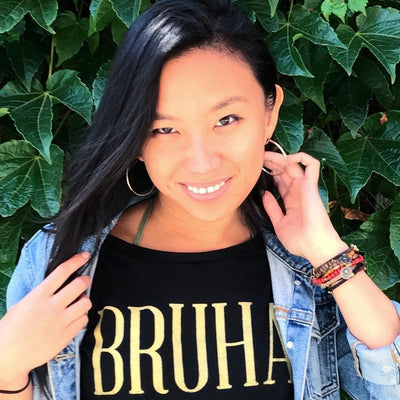I was born in Manila, Philippines and Tagalog is my native tongue, my very first language. But you wouldn’t really know it if you met me today.
To the surprise of many, English is only secondary for me. It is a language I first had to learn for school.
For those of you who don’t know, English and Filipino (specifically, a standardized variety of the Tagalog language) are the official languages of the Philippines, but English is the primary language of instruction across the country.
When I started school, my parents began speaking to me solely in English. They wanted to make sure I learned to speak English fluently. It is a language of the world, after all, and my success and mobility in the world hinged on speaking this tongue.
But that abruptly switched when we migrated to Canada. Suddenly we were strictly speaking Tagalog at home.
My parents knew that in this adopted home of ours, I would inevitably learn English, but there would be very few spaces for me to continue to speak and practice Tagalog.
The switch was jarring. I remember vividly coming home from school, chattering away about my day in English and being met with complete silence from my parents. The rule was, “No Tagalog, no response.”
It was incredibly annoying as a child trying to assimilate into this foreign country to have to switch to this language that seemed utterly useless, a language that no one else spoke but us.
But my parents knew inherently, in ways that I could not even fathom then and am only beginning to understand now, the importance of holding on to our native tongue.
Throughout the years, English has inevitably dominated my every day speech and Tagalog has become a mere afterthought. I don’t live at home anymore and even my parents often default to English when speaking now. Our first language has largely slipped into the background.
I didn’t realize how much I actually missed speaking my native tongue until my recent trip back home in January. It’s taken almost thirty years of my life and nearly a decade away from my homeland for me to fully appreciate just how beautiful, how lyrical, how absolutely precious this language of ours is.

Tagalog is a language filled with emotion that English could never match. It is full of drama and passion and depth. It is flirtatious and playful and kind. It is charged with feeling, tinged with longing, and sprinkled with a melody so warm it envelops everyone who comes across it.
It had been so long since I had been in the Philippines, but I slipped into my native tongue as easily and comfortably as you would slip into your old ways with a close friend you hadn’t seen in a very long time. It was easy, familiar, and deeply, deeply comforting.
I blended in seamlessly halfway across the world in this place I felt so connected to but had spent such little time in. I was picking up conversations with family and strangers alike. It’s like I had stumbled upon this magic power that lay inside me all this time. And I found myself speaking to anyone and everyone just as an excuse to feel and hear the sing-song sounds of our language wrap around my tongue, hit the roof of my mouth, and escape my lips.
My British partner, who was visiting the Philippines for the first time noticed me revel in this too. He’d often hang back when I was speaking to strangers so I wouldn’t have to translate for him and could just continue my conversations, cultivating connections with my kababayan (countrymen).
One time while watching one of my interactions, he smiled as he observed, “You put on a voice when you’re here. It’s like you have a different character.”
I laughed at his choice of words and said, “you mean I have an accent when I speak English or Taglish here.”
His statement stuck with me. It surprised and delighted me in ways I’m only now slowly beginning to understand. When I think about it, I was wrong to think he meant an accent. He chose the right words. I do have a different voice, a different character when I speak Tagalog. But he was mistaken in thinking it was “put on”. It is authentically me. It’s just a different part of me.
Charlemagne once said, “to have another language is to possess a second soul.” Perhaps that’s what Dom, my partner, was seeing for the first time. Maybe not a second soul exactly, but just another dimension of my already complex one.
And perhaps that was what I was seeing too for the first time in a very long time.
Interested to learn Tagalog / Filipino? Check out our blog post 6 resources to help you learn Filipino
Justine Abigail Yu

Justine Abigail Yu is a communications and marketing strategist for the social impact space and has worked with organizations operating in North America, Central America, East Africa, and Southeast Asia. She is the Founder and Editor of Living Hyphen, an intimate journal that explores the experiences of hyphenated Canadians and examines what it means to be part of a diaspora in our country. Her mission is to stir the conscience and spur social change.






Leave a comment